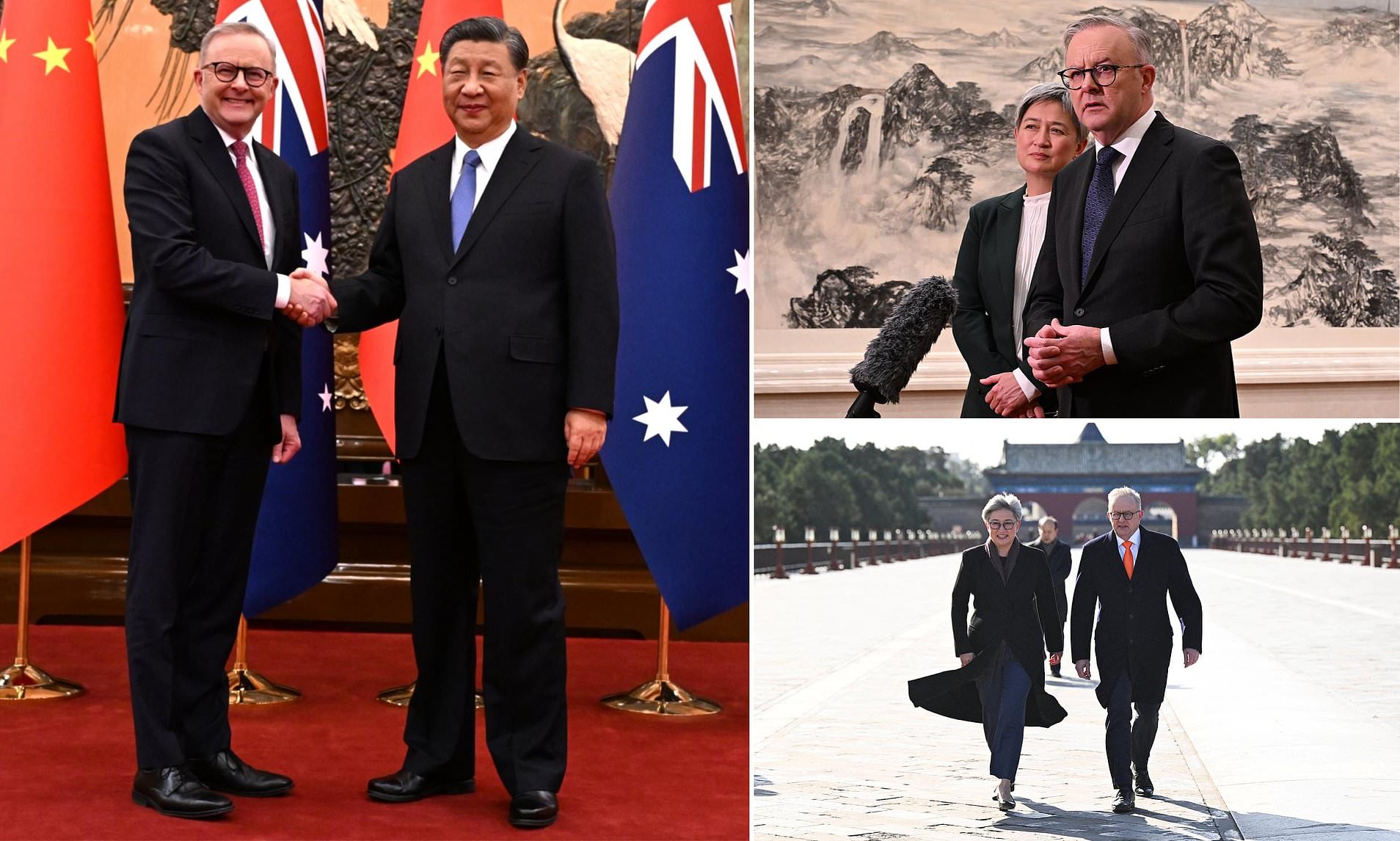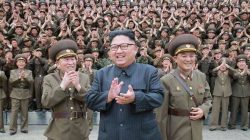Australia’s Foreign Minister Warns About China’s Military Expansion
Australian Foreign Minister Penny Wong has raised concerns about China’s expanding military presence in the region, as Prime Minister Anthony Albanese prepares for a six-day visit to Beijing. Wong made these remarks during a speech in Kuala Lumpur, where she acknowledged China’s significant role in addressing global challenges such as climate change, international trade, and public health.
However, she also highlighted the increasing assertiveness of China in the Indo-Pacific, emphasizing that the country is projecting its military power further into the region. Wong expressed concern over the rapid pace of China’s nuclear and conventional military build-up, which lacks the transparency expected by the region.
She specifically criticized China’s naval activities in the Pacific, stating that Australia will continue to voice its concerns about Chinese vessels engaging in destabilizing and dangerous behavior in the South China Sea, particularly towards Philippine and Vietnamese vessels.
Strategic Positioning Between China and the United States
Albanese is set to meet Chinese President Xi Jinping for the fourth time when he arrives in Beijing on Friday. This meeting comes at a time of intense debate regarding Australia’s strategic position between China and the United States. Despite this, Albanese is still awaiting his first in-person meeting with US President Donald Trump. The delay coincides with a Pentagon review of the AUKUS submarine pact and the Australian government’s refusal to meet US demands for a near doubling of defense spending.
Wong’s comments come shortly after Treasurer Jim Chalmers rejected Chinese pressure to relax foreign investment rules. Chalmers emphasized that the government would not compromise national security by allowing foreign ownership of critical sectors. He ruled out any weakening of regulations that prevent foreign ownership of critical infrastructure, energy, data, and minerals.
Reaffirming Independence and Sovereignty
In a recent speech, Albanese pushed back against growing pressure from Washington, referencing wartime Labor Prime Minister John Curtin. He credited Curtin with giving Australians the confidence to act as a sovereign state. Albanese reaffirmed his support for the AUKUS alliance while making it clear that Australia remains independent.
“I am a supporter of AUKUS… but that doesn’t mean that we are subservient to any other country,” he reportedly stated during a Q&A session.
During his meeting with President Xi, Albanese is expected to resist Beijing’s calls for greater cooperation on artificial intelligence, amid rising security concerns in the West over Chinese technology. Australian officials accompanying him have been instructed to leave personal and government devices behind, using temporary ‘burner’ phones and laptops instead due to concerns over cyber espionage.
Promoting Business Ties with China
In addition to diplomatic discussions, Albanese aims to promote deeper business ties with China, accompanied by a high-level Business Council of Australia delegation. This group includes CEOs from 14 leading Australian companies, such as Rio Tinto, BHP, Fortescue Metals Group, ANZ, and Macquarie Group.
Albanese will arrive in Shanghai on Saturday before proceeding to Beijing for the official meetings. The trip underscores the complex relationship between Australia and China, balancing economic interests with strategic and security concerns.







